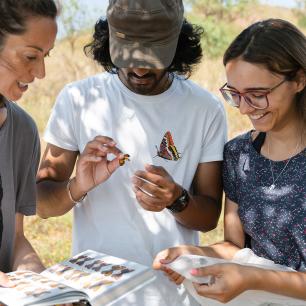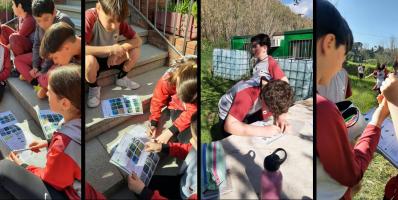Citizen science
Citizen science includes projects designed by scientists in which citizens participate in the collection of data, projects structured by scientists in which citizens have opportunities and tools to participate in the design of the project, the collection of data, and its analysis, and projects in which citizens participate in all stages of the scientific process. Such projects are designed to advance society’s understanding of the environment, ecosystem services, or environmental risks, and often involve citizens in conservation and improvements in environmental health. The benefits, therefore, are shared between the scientific community and the general public.


Que es Citizen science?
What is citizen science?
Citizen science is a form of collaboration between scientists and citizens in the research process. Citizens can participate in different stages of the scientific process through various types of projects:
Contributory projects: Citizens help in the collection of data according to the instructions of the scientists.
Collaborative projects: Citizens actively participate in project design, data collection and analysis, using tools provided by researchers.
Co-creative projects: Citizens are involved in all stages of the scientific process, from design to the interpretation of the results.
These projects allow society to advance its understanding of the environment, improve public health and increase conservation awareness. In addition, they facilitate citizen participation in decision-making and the development of environmental policies.
How can citizen science be implemented in research?
The implementation of citizen science in research can be carried out through several strategies:
- Improve participation and involvement: Develop innovative methodologies and tools that encourage the active and sustained participation of citizens in scientific projects, maintaining long-term interest and involvement.
- Integrate diverse data sources: Create systems to collect and analyze diverse types of data, including sensor data, experiment results, and information from various scientific disciplines.
- Ensure data quality and interoperability: Implement systems based on artificial intelligence to ensure the quality of data collection and develop standards that allow seamless integration and sharing between different citizen science platforms.
- Build effective communication and governance models: Develop effective communication strategies and new governance models that incorporate citizen input, facilitating better decision-making and environmental management.





